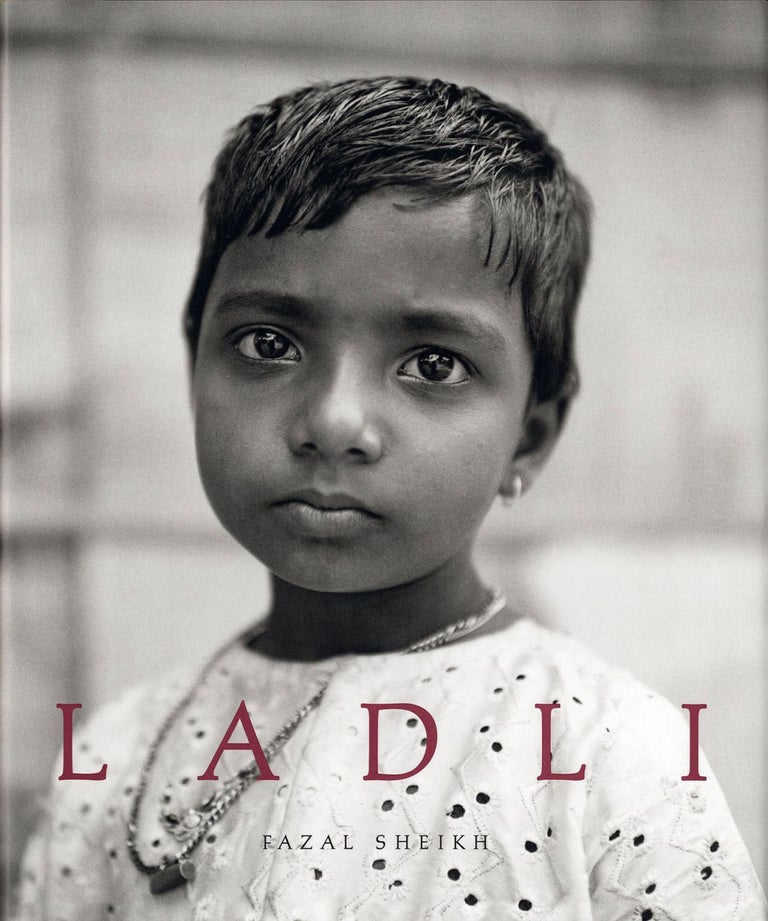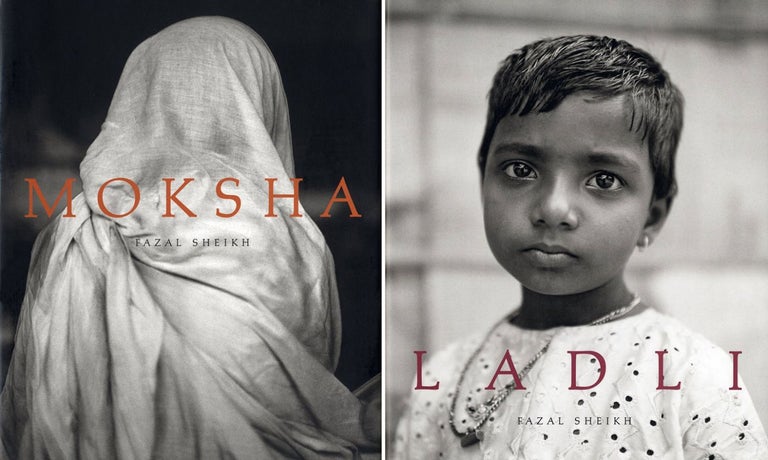Fazal Sheikh: Moksha [SIGNED]
Publisher: Göttingen, Germany: Steidl, 2005
Edition: 1st Edition
Binding: Hardcover
ISBN: 3865211259
Condition: New / New
Item #: 105074
$95.00
Specifics
First edition, first printing. Signed in black ink on the title page by Sheikh. Hardcover. Fine iridescent burnt-orange cloth-covered boards with title stamped in black on spine, with photographically illustrated dust jacket. Photographs and text (in English, Hindi and Bengali) by Fazal Sheikh. Additional text and paintings by the women of Vrindavan. Includes a laid-in illustrated booklet with the Hindi and Bengali text translations. Designed by Fazal Sheikh with Hanna Koller, Claas Möller. 280 pp., with 170 tritone plates beautifully printed on heavy matte paper in Germany by Steidl, Göttingen. The laid-in booklet is 52 pp., with 8 four-color plates. 10-5/8 x 9 inches.
Condition
New in New dust jacket (opened only for signature).
Description
From the publisher: "For five hundred years the holy city of Vrindavan in northern India has been a haven for India's dispossessed widows. Cast out by their families and condemned by strict marital laws which deny them legal, economic and, in extreme cases, even human rights, they have made their way to the city to worship at its temples and live in its ashrams, surviving on charitable hand-outs or begging on the streets. In Vrindavan they worship the young god Krishna, who invades their dreams, helping them to cast off memories from their past life and prepare for a new and better life to come. Their ultimate dream is to reach Moksha--heaven--where they will find freedom from the cycle of death and rebirth and live surrounded by their gods forever. Fazal Sheikh's photographs capture the meditative mood of the city and his portraits of the widows convey their sense of acceptance of life nearing its end and a longing for what is to come. As in his previous books he spent time with his subjects, listening to their stories, many of which reveal the suffering caused by traditions that still govern Indian society. Through his depiction of the city and its inhabitants, Fazal Sheikh once again contributes to our knowledge and understanding of a community whose existence, to those who live outside it, remains closed."


![Fazal Sheikh: Moksha [SIGNED]](https://vincentborrelli.cdn.bibliopolis.com/pictures/105074.jpg?auto=webp&v=1416427049)
![Fazal Sheikh: Moksha [SIGNED]](https://vincentborrelli.cdn.bibliopolis.com/pictures/105074_2.jpg?auto=webp&v=1416427051)
![Fazal Sheikh: Moksha [SIGNED]](https://vincentborrelli.cdn.bibliopolis.com/pictures/105074_3.jpg?auto=webp&v=1416427053)
![Fazal Sheikh: Moksha [SIGNED]](https://vincentborrelli.cdn.bibliopolis.com/pictures/105074_4.jpg?auto=webp&v=1416427055)
![Fazal Sheikh: Moksha [SIGNED]](https://vincentborrelli.cdn.bibliopolis.com/pictures/105074_5.jpg?auto=webp&v=1416427058)
![Fazal Sheikh: Moksha [SIGNED]](https://vincentborrelli.cdn.bibliopolis.com/pictures/105074_6.jpg?auto=webp&v=1416427060)

